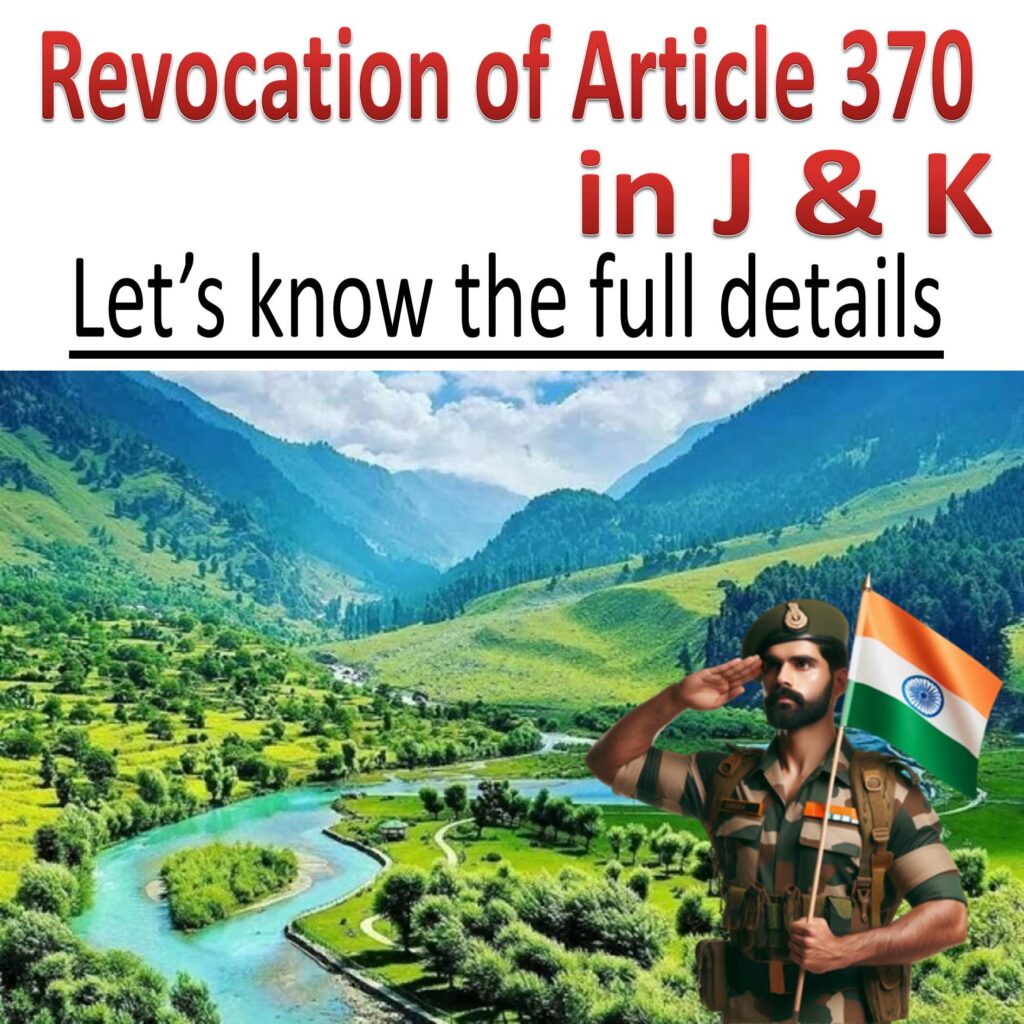On August 5, 2019, the Indian government made a historic move by abrogating Article 370 and Article 35A, effectively revoking the special status accorded to the state of Jammu & Kashmir (J&K). This decision, hailed by some as bold and criticized by others as controversial, reshaped the constitutional relationship between the Union of India and the former state of J&K.
What Were Articles 370 and 35A?
This is Article 370
- Enacted as a temporary provision, Article 370 granted special autonomy to the state of Jammu & Kashmir.
- Except for defense, foreign affairs, and communications, the Indian Parliament needed the J&K State Government’s concurrence to apply laws.
- It allowed J&K to have its own Constitution, flag, and laws.
- Residents of J&K enjoyed dual citizenship and exclusive rights over property and jobs.
Know the Article 35A
- Introduced through a Presidential Order in 1954, it empowered the J&K legislature to define “permanent residents” and provide them with special rights and privileges.
- Non-residents were prohibited from buying land or settling in the state, leading to criticism that it fostered discrimination and inequality.
The Revocation of Article 370 : A New Chapter
The government, invoking Article 370(3), recommended the President of India to declare all clauses of Article 370 inoperative. Alongside, the Jammu and Kashmir Reorganization Act, 2019, was passed, bifurcating the state into:
- Union Territory of Jammu & Kashmir (with a Legislative Assembly)
- Union Territory of Ladakh (without a Legislative Assembly)
This move annulled the special status of J&K and brought it under the full purview of the Indian Constitution, allowing central laws to be uniformly applied.
Implications of the Move
Political Movement
- The decision was met with both celebration and dissent.
- Regional political leaders were detained.
- Restrictions on movement and communication were imposed.
Legal Framework
- Several petitions were filed in the Supreme Court, challenging the constitutionality of the move.
Socio-Economic Implication
- Supporters argue that it will foster integration, economic development, and equal rights for women and marginalized communities.
- Critics fear erosion of cultural identity and democratic rights.
Conclusion
The abrogation of Articles 370 and 35A is a landmark constitutional transformation in Indian history. While it promises new opportunities and national integration, it also calls for a sensitive and inclusive approach to address the aspirations of the people of Jammu & Kashmir and Ladakh.
- Faulty Product? Here’s How to Get a Refund in India 2025
- Dowry Harassment Complaint India 2025: File Against Husband’s Family
- Facing Workplace Harassment? Here’s What the Law Says in India 2025
- Police not lodging FIR? What to do? Updated as of 2025 July
- One Law, Equal Rights: The Real Meaning of Articles 14 & 16

